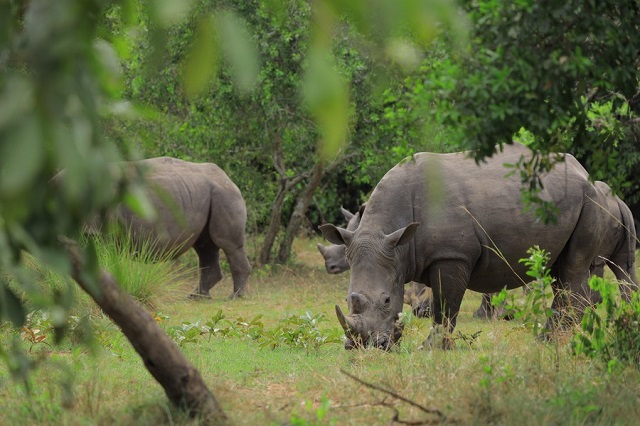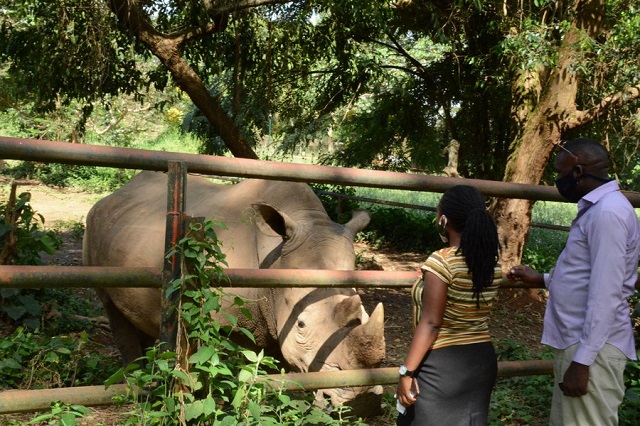
ARUA, Uganda | Xinhua | Conservationists in Uganda are working to transform the Ajai Wildlife Reserve in the northwestern Ugandan district of Madi-Okollo into a home for the endangered white rhinoceros.
The Uganda Wildlife Authority (UWA), a state conservation agency, is deploying both biological and manual efforts to restore the 166-square-kilometer reserve to its original savannah state to enable the relocation of the rhinoceros next year.
Sam Mwandha, executive director of the UWA, told Xinhua in a recent interview that so far 226 Ugandan kobs had been translocated to the reserve and soon, buffaloes would also be taken there to graze the grass to a level that is appropriate for the rhinoceros.
“It is part of a longer program to reintroduce rhinos. We started with kobs, and then we will bring in buffaloes and then finally rhinos so that people can come and enjoy this place. It is part of our conservation strategy,” Mwandha said. We are working with the community so that there is no poaching and increasing security to reduce the poaching that has been happening.”
Patrick Atimnedi, head of veterinary services at the UWA, said about 20 unrelated rhinoceros would be taken to the reserve as the founder population, which is expected to multiply. Atimnedi said at least 12 rhinoceros would be taken from the 41 rhinoceros at Ziwa Sanctuary, and another eight would be brought into the country to the reserve.
He said a sanctuary would be built at the reserve as one of the measures to ensure that the endangered animals are safe from poachers.

Swaib Toko, the resident commissioner of Madi-Okollo District, said a lot of sensitization meetings with the communities and their leaders have been held to ensure the protection of wildlife.
“We shall have security all over, but we are also doing a lot of sensitizations to ensure the message has sunk down in the community,” he said.
Uganda used to have a large number of rhinoceros, especially the northern white rhinoceros species. The population suffered a sharp decline during the civil wars the country had in the 1970s and early 1980s. By 1983, rhinoceros were declared extinct in Uganda.
The birth of the Ziwa Rhino Sanctuary in 2005 and the reintroduction of the rhinoceros by the Rhino Fund Uganda was good news to the country and conservationists globally. The sanctuary, which is being used as a breeding program, now has a population of 41 rhinoceros and is about to reach its maximum carrying capacity.
The sanctuary is also a popular tourist destination for travelers yearning to see the second-biggest land mammal on Earth after the elephant.
According to the UWA, the reintroduction of rhinoceros into the national parks will make Uganda home to the Big Five game, which offers travelers wildlife experiences. The other four include elephants, lions, hippopotamuses and buffaloes.
Uganda used to earn more than 1.6 billion U.S. dollars from the tourism sector annually. The country’s tourism earnings in 2020 dropped by 73 percent to 0.5 billion dollars due to the COVID-19 pandemic, and is now on a recovery trend, according to the Ministry of Tourism, Wildlife and Antiquities. ■
 The Independent Uganda: You get the Truth we Pay the Price
The Independent Uganda: You get the Truth we Pay the Price





